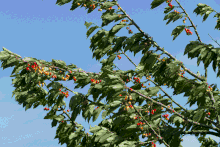вѣтръ
Old Church Slavonic

вѣтръ
Alternative forms
- Glagolitic: ⰲⱑⱅⱃⱏ (větrŭ)
Etymology
From Proto-Slavic *větrъ.
Noun
вѣтръ • (větrŭ) m
- wind
- “ⰲⱃⱑⱅⱃⰻ (ⰲⱑⱅⱃⰻ) (line 6, leaf 3)”, in Codex Marianus [Ф.87 №6] (in Old Church Slavonic), National Library of Russia, 1016±16, page Mt:7:25:
- i съниде дождъ и придѫ рѣкꙑ и вьзвѣашѧ вѣтри
- i sŭnide doždŭ i pridǫ rěky i vĭzvěašę větri
- And the rain descended, and the floods came, and the winds blew (Matthew 7:25)
- “ⰲⱃⱑⱅⱃⰻ (ⰲⱑⱅⱃⰻ) (line 6, leaf 3)”, in Codex Marianus [Ф.87 №6] (in Old Church Slavonic), National Library of Russia, 1016±16, page Mt:7:25:
Declension
Declension of вѣтръ (o-stem)
| singular | dual | plural | |
|---|---|---|---|
| nominative | вѣтръ větrŭ |
вѣтра větra |
вѣтри větri |
| genitive | вѣтра větra |
вѣтроу větru |
вѣтръ větrŭ |
| dative | вѣтроу větru |
вѣтрома větroma |
вѣтромъ větromŭ |
| accusative | вѣтръ větrŭ |
вѣтра větra |
вѣтрꙑ větry |
| instrumental | вѣтромъ větromŭ |
вѣтрома větroma |
вѣтрꙑ větry |
| locative | вѣтрѣ větrě |
вѣтроу větru |
вѣтрѣхъ větrěxŭ |
| vocative | вѣтре větre |
вѣтра větra |
вѣтри větri |
Derived terms
- безвѣтрие (bezvětrie)
- вѣтрило (větrilo)
- вѣтрьнъ (větrĭnŭ)
- завѣтрьнь (zavětrĭnĭ)
Related terms
- вѣꙗти (vějati)
Old East Slavic
Etymology
From Proto-Slavic *větrъ.
Pronunciation
Declension
Declension of вѣтръ (hard o-stem)
| Singular | Dual | Plural | |
|---|---|---|---|
| Nominative | вѣтръ větrŭ |
вѣтра větra |
вѣтри větri |
| Genitive | вѣтра větra |
вѣтру větru |
вѣтръ větrŭ |
| Dative | вѣтру větru |
вѣтрома větroma |
вѣтромъ větromŭ |
| Accusative | вѣтръ větrŭ |
вѣтра větra |
вѣтрꙑ větry |
| Instrumental | вѣтръмь větrŭmĭ |
вѣтрома větroma |
вѣтрꙑ větry |
| Locative | вѣтрѣ větrě |
вѣтру větru |
вѣтрѣхъ větrěxŭ |
| Vocative | вѣтре větre |
вѣтра větra |
вѣтри větri |
Descendants
References
- Sreznevsky, Izmail I. (1893) “вѣтръ”, in Матеріалы для Словаря древне-русскаго языка по письменнымъ памятникамъ [Materials for the Dictionary of the Old East Slavic Language Based on Written Monuments] (in Russian), volumes 1 (А – К), Saint Petersburg: Department of Russian Language and Literature of the Imperial Academy of Sciences, column 498
This article is issued from Wiktionary. The text is licensed under Creative Commons - Attribution - Sharealike. Additional terms may apply for the media files.